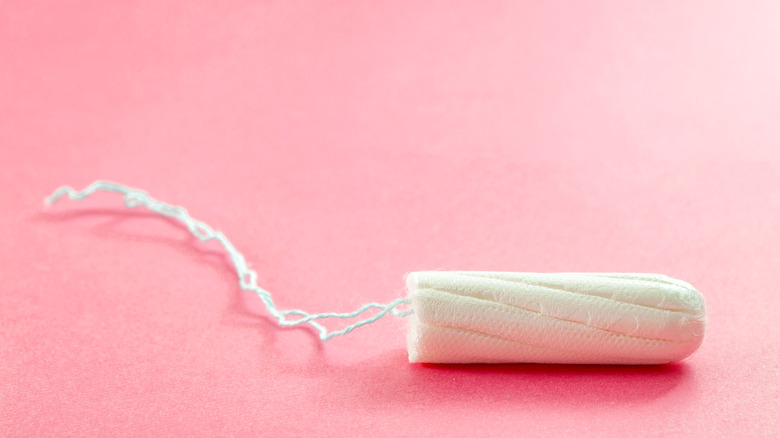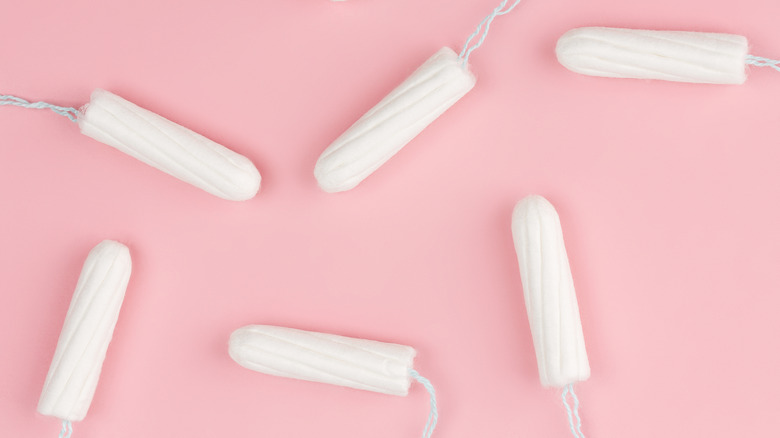The Truth About Organic Tampons
Over the past decade, organic fruit, vegetables, and milk have become commonplace on the shelves of our local supermarkets. And now, organic tampons are starting to command space. While we understand what organic food means, we have many questions about organic tampons — for example, what's the difference between a regular tampon and an organic tampon? Is it true organic tampons are better for our health? And should we be choosing them over regular tampons?
According to Hello Giggles, organic tampons are made from 100 percent cotton, rather than a mix of cotton and rayon, which is what is found in most regular tampons. They are also free from plastic, chemicals, and any added fragrance. While organic and non-organic products are regulated by the FDA, brands are not required to disclose the ingredients on the product's box, meaning there is a slight gray area when it comes to what's actually inside traditional tampons.
Organic and non-organic tampons are both safe to use
Hello Giggles found that publications such as GOOP and Entity Mag, as well as brands like Cora, believe the chemicals found in regular tampons can be a danger to health as they are absorbed by the body when used. However, San Francisco Bay Area obstetrician-gynecologist Jen Gunter, M.D., and Lauren Streicher, M.D., associate professor of clinical obstetrics and gynecology at Northwestern University Feinberg School of Medicine, explained to SELF that such claims are purely for marketing purposes. "There's no data to show that organic tampons are any safer or that there's any advantage to any of the claims made by organic tampon companies," Gunter said.
As Streicher put it, "Your vagina doesn't care what type of tampon you use." However, she does note the importance of being aware of any products that contain fragrance as they can be more likely to cause irritation. Ultimately, if you experience irritation from any kind of menstrual product, organic or not, it's best to stop use immediately and try something else.

